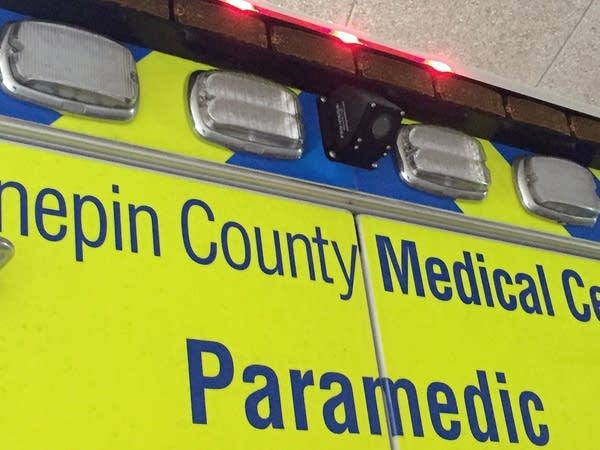Why video of Jamar Clark's death may not be released soon

Go Deeper.
Create an account or log in to save stories.
Like this?
Thanks for liking this story! We have added it to a list of your favorite stories.
Events surrounding the shooting death of Jamar Clark by a Minneapolis police officer were recorded by a number of video cameras, including the phones in people's pockets and a surveillance camera outside a nearby public housing unit.
Jamar Clark, 24, was shot by an officer and later died after a confrontation in north Minneapolis early Sunday. Police said they were called because Clark was interfering with paramedics who were trying to treat an injured woman.
Protesters camped outside the Police Department's 4th Precinct in north Minneapolis have demanded the release of the videos in hope of learning more about how Clark died.
But officials with the Bureau of Criminal Apprehension, which is conducting the state investigation into Clark's killing, have said the entire incident isn't contained in any of the videos. BCA Superintendent Drew Evans said they won't release the videos during the investigation because it could contaminate witness statements.
Turn Up Your Support
MPR News helps you turn down the noise and build shared understanding. Turn up your support for this public resource and keep trusted journalism accessible to all.
"Releasing them would impact the integrity of the investigation that's ongoing currently, and would impact the integrity of the eventual prosecutorial review process that will be pending at the conclusion of our investigation," Evans said.
State law makes data collected by the law enforcement for an active criminal investigation private.
If police think releasing the video to clear up a misconception about the incident, they could, although they're under no legal obligation to do so. In the past, police departments have released videos of officer-related incidents — St. Paul police released a video showing officers in a skyway stunning a man with a Taser and arresting him.

The American Civil Liberties Union of Minnesota is among the groups that have called for the videos of the incident to be released. Legal Director Teresa Nelson said the state's argument to not release videos for fear of tainting witness statements could make sense, but that most witness interviews should be done in the first couple days after an incident anyway.
"We have called on police departments to have more transparency because it helps build that relationship with the community," Nelson said. "If the department is closed off and won't provide answers and is very secretive in everything that happens and not communicating with the community, that can foster a climate of distrust."
Since law enforcement officials have declined to release the videos, state law dictates that they'll be released once the investigation becomes inactive. That will occur if an agency drops the investigation, prosecutors decline charges, the statute of limitations expires, all appeals are exhausted or the data are presented as evidence in court, according to statute.
The video obtained by the BCA in the course of the investigation came from sources including personal cellphones, a camera mounted on an ambulance, surveillance cameras on a public housing building and a nearby police observation station.
The BCA has asked anyone with further video of the incident to come forward. Nelson said it's unlikely people would face any legal repercussions for posting videos online that they took of the incident on their own.
"Certainly if they provide BCA with a copy of the video, they still own it, and I would think that BCA would need a court order to prevent them from publishing it," Nelson said. "Courts and the First Amendment frown on that type of prior restraint."
Officers weren't wearing body cameras during the incident. Minneapolis ended a pilot program with body cameras earlier this year, but plan to implement the program in 2016.



